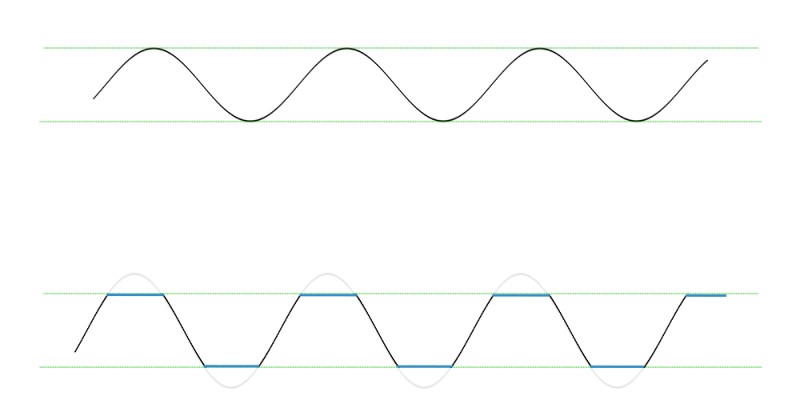What is Headroom in Home Theater Speakers and Amplifiers?
People toss around “headroom” when talking about home theater speakers and amplifiers all the time. We have to admit, we are guilty of it as well. If you read posts on Internet forums it is clear that not everyone means the same thing by the word. So, what is “headroom,” do you need it, and how should it affect how you shop for home theater speakers, AV receivers, and amplifiers? Let’s discuss!
It’s All About Volume
The easiest way to think about headroom is that it is the ability of your home theater speakers or amplifiers to play louder than you need. If that doesn’t make sense to you, think about your car. Do you want a car that tops out at the highway speed limit? Not really. This would put your engine at the red line constantly and any push to go even a little faster would risk damaging your engine. Sure, you may never drive faster, but you certainly want the ability to do so. Headroom is the same.
Clipping and Distortion
It would be great if there were a hard and fast rule for how to mix audio regardless of content. With movies, they are supposed to be mixed to reference level. Not all movies are (looking at you Disney), and no other content has an equivalent standard. This means that you’ll find yourself preferring one volume setting for movies, a different one for games, and any number of settings for the various streaming apps.

Having a home theater speaker or amplifier with headroom means that it can play louder than you would normally play it without risking damage. This damage will manifest in the speaker distorting or the amplifier clipping. Having headroom is probably inevitable when you buy your home theater speakers or amplifiers. It is very improbable that you’ll get an amp or speaker that can just barely hit reference level in your room
When Reference Level Doesn’t Matter
The number one thing to remember is that people rarely listen at reference level. If your home theater speakers or amplifiers can hit reference level in your room, they probably already have plenty of headroom. How would you know? What setting do you use on your AV receiver’s volume dial? Is it less than 0dB? Then you listen at less than reference volume. Therefore, if your speakers and amps have headroom to get louder if needed.
When Is Headroom Important
Some people seem to believe that there are transients (very brief sounds) that are considerably louder than reference level. That’s not how reference level works. As a reminder, reference level defines the sustained volume (over time) and the maximum volume (instantaneous) that a movie should hit. If a movie is properly mixed, and your speakers can hit reference level, then there are no transients that are any louder. By definition.
But, as we said, most content doesn’t have any mixing standards. This means they might, at the same position on the volume dial, be much louder than reference level. For that content, having home theater speakers and amplifiers that can handle the additional volume will protect them from damage. More importantly, you will likely immediately reduce the volume if you experience something this loud. While it doesn’t take long for extremely loud sounds to damage your speakers or amps, you turning it down is one of the better ways to protect your gear.
How You Use Your Gear Is Important
If your gear is currently in a small room, but you plan on moving it to a larger one soon, you may be buying gear with tons of headroom. Not because of the room it is currently in, but because you need that gear to be able to get loud enough in the larger room.
More commonly we see people that use their gear normally most of the time, but occasionally want to “blast” it. Why? Maybe they are cleaning and want to hear their music over the vacuum cleaner. Maybe they throw raging parties. We don’t know. But occasionally they turn the volume WAY up. For these people, having lots of headroom is important for both protecting their gear and getting the desired volume.
Take Away
We’ve talked about how it is a waste of money to buy the big subwoofer, the big amplifier, the tower speakers, and more. All of these suggestions come back to headroom. If you are buying home theater speakers or amplifiers because you think (or the Internet told you) that they have more “headroom,” rethink your purchase. Will you ever need that extra volume? If not, you’re just wasting your money for performance you’ll never experience. Is some headroom important? Absolutely. But more headroom is definitely not better.


